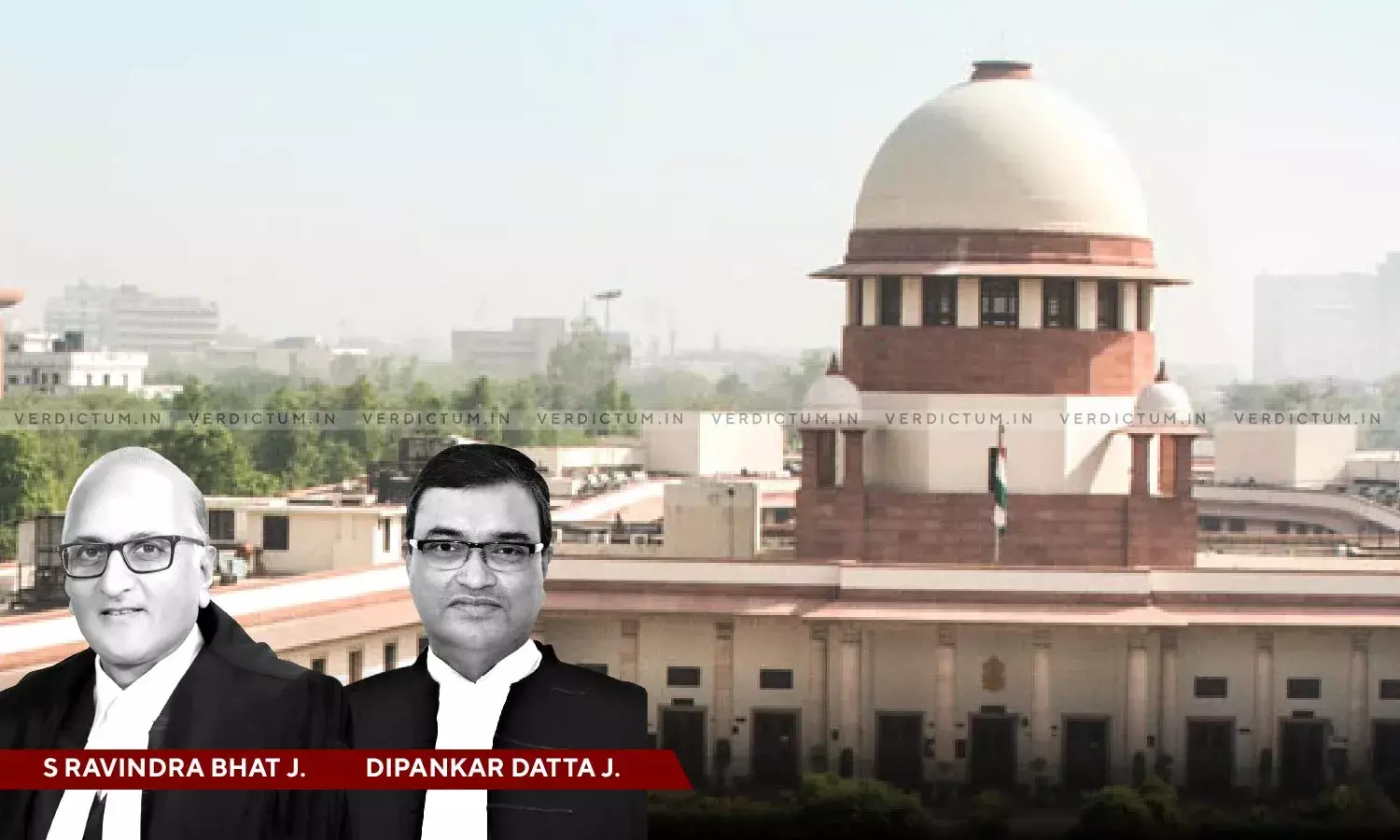Court Also Has To Be Conscious Of Financial Condition He Is Placed In: SC Reduces Fine Of ₹2 Lakhs To ₹50k Imposed On Rape Convict
The Supreme Court recently reduced the fine from Rs. 2 Lakhs to Rs. 50,000 of a daily wager who was convicted for murder and rape of a minor girl and was directed by the Trial Court that in the event of default of payment of ₹ 2,00,000/- fine towards the conviction under Section 376 IPC, the appellant would undergo sentence of three years.
“The record indicates that the appellant was a daily wager with no permanent employment. Undoubtedly, he stands convicted of offences which cannot but be termed heinous. At the same time the Court also is to be conscious of the financial condition he is placed in,” observed a Bench of Justice S. Ravindra Bhat and Justice Dipankar Datta.
Therefore, the Court modified the fine amount (imposed in respect of the conviction under Section 376 IPC) from ₹ 2,00,000/- to ₹ 50,000/-. Likewise, the default sentence is reduced from three years to one year’s simple imprisonment. Apart from the above modification, the conviction and sentence concurrently in respect of other offences upheld are not disturbed, said the Court.
Advocate Kaushal Yadav appeared for Appellant whereas Advocate Abhay Anil Anturkar appeared for Respondents.
The Supreme Court issued a limited Notice to the State on the question of correctness of the default sentence imposed. The Court clarified that interference with the merits of the appeal was not called for.
The High Court of Bombay at Goa affirmed the conviction and sentence of the accused for committing offences under Sections 302, 363, 376, 201 IPC read with Section 8(2) and 60-A of the Goa Children’s Act, 2003.
In the present case, besides the substantive sentence of rigorous imprisonment for life, the appellant was also imposed with fine of total ₹ 2,18,000/- under the following heads:
(A) ₹ 2,00,000/- (for the offence committed under Section 376 IPC read with Section 8(2) of the Goa Children's Act, 2003) and in default sentence of three years,
(B) ₹ 5,000/- and in default simple imprisonment (for three months for the offence punishable under Section 363 IPC),
(C) ₹ 10,000/- and in default simple imprisonment for six months (for the offence punishable under Section 302 IPC) and
(D) ₹ 3,000/- in default to undergo simple imprisonment for two months (for the offence punishable under Section 201 IPC).
The appellant-convict relied upon the judgment in “Shahejad Khan Mehebubkhan Pathan vs. State of Gujarat” of the top Court to urge that the Court should not impose excessive default sentences, for non payment of very high amounts as fine.
It was urged on behalf of the State that the Court should be alive to the nature of the offence, circumstances in which it was committed, position of the offender and other relevant considerations such as pecuniary circumstances of the accused, while indicating the fine and the default sentence.
Further, the State relied on the judgment in “Sharad Hiru Kolambe vs. State of Maharashtra & Ors.” to say that the default sentence per se would be over and above the substantive sentence imposed in any given case.
The Apex Court said “the Courts have to be sensitive as to the nature of offence, circumstances in which the accused committed the crime and the victim even while balancing it with the peculiar financial condition which the accused might be placed in”.
In the above circumstances, the Court allowed the appeal partly allowed while keeping all rights and contentions open.
Cause Title- Deepak Kumar Ganesh Rai Manto v. State of Goa & Anr.
Click here to read/download the Order




